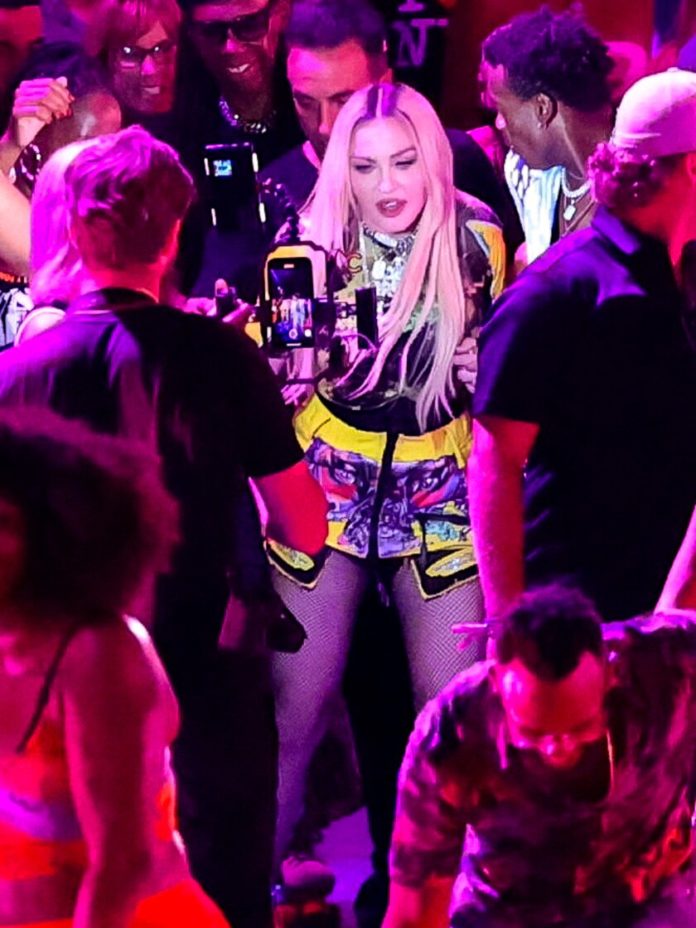Tyshawn Sorey Trio
“Mesmerism”
(Yeroz7 Music)
One of the most acclaimed, versatile and adventurous American musicians to emerge in this century, Tyshawn Sorey is — at 42 — almost dizzyingly multifaceted.
A 2017 MacArthur Foundation “genius grant” recipient, he is a percussionist, pianist and trombonist who has composed envelope-shredding works for orchestras, chamber ensembles and opera companies. His music, which skillfully blurs the lines between notated scores and edgy improvisation, draws from the past and present to boldly point ways to the future.
Sorey is also a band leader and protean jazz drummer who has a wonderfully nimble touch and constantly pushes — and subverts — stylistic boundaries. He has memorably collaborated with such like-minded mavericks as saxophonists Anthony Braxton and John Zorn, pianist Vijay Iyer, violinist Jennifer Koh and electronic music innovator (and University of California San Diego professor) King Britt, with whom Sorey will perform a free duo concert at UCSD’s new Epstein Family Amphitheatre on Oct. 29.
What Sorey has not done on any of his previous dozen-plus solo releases is devote almost an entire album to jazz classics and chestnuts from the Great American Songbook.
That is exactly what Sorey does on “Mesmerism,” which teams him with pianist Aaron Diehl and bassist Matt Brewer. The album includes a sublime version of Duke Ellington’s “REM Blues,” as well as compositions by pianist Muhal Richard Abrams and drummer Paul Motian, whose work in the legendary Bill Evans Trio and as an enterprising band leader is an inspiration to Sorey.
Together, he, Diehl and Brewer gracefully salute and extend the traditions of the jazz piano trio. It’s an instrumental configuration decades older than any of them, but one all three know very well.
They open “Mesmerism” with Horace Silver’s 1956 gem, “Enchantment,” which is performed with a winning combination of reverence and in-the-moment attentiveness. This reverence is balanced by the constantly inventive manner in which Sorey and his bandmates turn what was a brassy, hard-bop number into something much more restrained and ruminative, but no less potent.
Likewise, their finely calibrated version of “Autumn Leaves” exudes respect for the oft-covered original while also breathing welcome new life into it.
Even better is the trio’s quietly stunning interpretation of Bill Evans’ elegantly bluesy “Detour Ahead.” It features pianist Diehl and bassist Brewer deftly modulating into different keys as Sorey adds unexpected percussive accents that always sound exactly right.
Abrams’ gorgeous “Two Over One” and Motian’s slow-building “From Time to Time” may be less known to some listeners, but Sorey and his bandmates make a strong case that both songs are classics in their own right. The trio’s lithe performances of them are a marvel of keen interplay, pinpoint dynamic control and admirable sensitivity.
Where Sorey typically rehearses his bands extensively prior to recording, he did not do so this time around. His goal was to capture a sense of immediacy that requires the musicians to focus on emotional expression and real-time interplay without having time to overthink their parts.
It’s an approach that works extremely well on “Mesmerism,” an album that revels in nuance and in the joy of digging deep to find new possibilities in old favorites.

Madonna is shown at The DiscOasis at Wollman Rink in Manhattan’s Central Park, where she celebrated the release of her new 3-CD compilation on Aug. 10.
(Jose Perez/Bauer-Griffin / GC Images)
Madonna
“Finally Enough Love: 50 Number Ones”
(Rhino)
The good news for Madonna is that she is the only artist who has topped Billboard magazine’s Dance Club Songs Chart 50 times.
In fact, she’s the only artist to have topped any of Billboard’s many national charts 50 times, a feat memorialized on this three-CD collection of remixed versions of those hits.
While vocal prowess has never been her strong suit, Madonna is undeniably a master of self-promotion and image. And she has no equals when it comes to transforming underground dance music trends often born in Black gay and Latinx nightclubs — “Vogue” is a key example — into mainstream hits for a mass audience.
Not coincidentally, “Vogue” is interpolated on “Break My Soul (The Queen’s Remix),” a standout song on Beyoncé ‘s new album, “Renaissance.” The key difference is that — rather than using the song to cite such Hollywood film legends as Greta Garbo and Marlon Brando, as Madonna did on “Vogue” — Beyoncé give shout-outs on “Break My Soul” to more than two-dozen pioneering female Black music artists (from Sister Rosetta Tharpe and Nina Simone to Whitney Houston and Santigold), as well as to House of Balenciaga, House of Aviance and other ballroom houses where voguing came of style more than 40 years ago.
The bad news about “Finally Some Love: 50 Number Ones,” at least for all but Madonna’s most devoted fans, is that would be a much more effective album if it was trimmed down to a single CD. It would still be flawed, but not nearly as much.
That may well be why “Finally Some Love” was first released in June as a a 16-song, single-disc album before the 50-song edition came out last month. In either form, one-CD or three, there are problems here that even someone as tenacious as Madonna can’t overcome.
First and most curious is her decision to feature edited remixes of her hits. Remixes, by definition, are almost always extended versions of songs that have been extended specifically so that dance club patrons can get their groove on at length.
Madonna’s first all-remix album, 1987’s five-million-selling “You Can Dance,” was built on that premise. The original version of “Into the Groove,” her 1985 hit, clocked in at three minutes and 51 seconds, but was extended to over eight minutes on “You Can Dance.” On “Finally Some Love: 50 Number Ones,” it is inexplicably reduced to four minutes and 44 seconds.
That same template of truncation is used on other selections here, including “Express Yourself” and “Everybody.” Apparently, Madonna — who handpicked all 50 versions of her songs for this collection — believes less is more, even when it comes to remixes that were first made to celebrate more being, well, more.
To further compound matters, she curiously favors remixes by such marginally skilled collaborators as producers Offer Nissim, Bob Sinclair, Deep Dish, LMFAO and the lone-named Sasha.
Moreover, where she once helped set trends — by skillfully coopting them from underground dance clubs — her more recent work (that is, in this century) reflects rather than anticipates the rise of EDM as a major commercial force. The result on “Finally Some Love: 50 Number Ones” is an uneven hodgepodge that finds Madonna doing a disservice to her fans and her legacy.

The members of The Phantom Blues Band are, from left, Les Lovitt, Tony Braunagel, Larry Fulcher, Jim Pugh, Johnny Lee Schell and Joe Sublett.
(Alex brown Photography)
The Phantom Blues Band
“Blues for Breakfast”
(Little Village)
It’s not surprising Bonnie Raitt turns up to share vocals on “Country Boy,” the seventh selection on “Blues for Breakfast.”
Formed in the 1990s by her friend and periodic collaborator, Taj Mahal, The Phantom Blues Band features two former longtime Raitt band members — guitarist-singer Johnny Lee Schell and drummer Tony Braunagel. Keyboardist/singer Mike Finnigan, who toured with Raitt through 2019 and died from kidney cancer last year, was a co-founder of The Phantom Blues Band.
The brassy six-man band features seasoned studio session and touring pros whose credits range from B.B. King and Little Milton to Gregg Allman and Stevie Ray Vaughan. “Blues for Breakfast,” the group’s fifth and newest album, features Finnigan on just one song, the amiable shuffle “OK, I Admit It,” and it’s a highlight.
While neither of the group’s other two singers — Schell and bassist Larry Fulcher — can match the late Finnigan’s soulful vocal prowess, “Blues for Breakfast” is a solid outing by a veteran act that should kick things into high gear Saturday when it performs at the 12th annual San Diego Blues Festival.
Proceeds from the 12-song “Blues for Breakfast” will be donated to Finnigan’s School of Music at the Stiefel Theater in Salina, Kansas. Good music in support of a good cause is always a winning combination.








